Description
A 3-dimensional virtual Microbiology laboratory with 360-degree view was developed. This helps them personalise their learning focus and gives tailored guidance and clear instruction in a cost-effective manner. The learning platform was designed based on the Kolb's experimental learning cycle whereby the students learn by active experimentation followed by actual experience that leads to reflective observation and abstract conceptualisation. The virtual laboratory is designed to mimic the actual laboratory procedure practised in the university real laboratory. This provides an interactive and immersive learning experience to guide the students with stepwise instructions (in blackboard), prompts and feedback for all six experiments. The students feel free to make mistakes and can repeat the experiment as many times as they want to get familiar. Our analysis of student experience showed an increase in the knowledge score from 6.31 to 7.13 after using the VR laboratory. They found the activities to be engaging and interesting, help them recall knowledge as well as learn the experimental procedure. The students gave positive feedback about the VR laboratory on the usefulness as a learning tool. This virtual microbiology laboratory is transferable and 100% scalable to any university or any programme teaching microbiology for undergraduate students.
Highlights
A virtual microbiology laboratory was developed that provides users a 360 degrees immersive 3-dimensional experience to the user. This is a pioneer project developed in-house based on real time environment. Not even a single frame was taken from any other source for all the six experiments (incorporating more related experiments in some sessions). Even first-time users can handle the controls with ease. At the start the lobby describes about the controls and its function, there is a game to get them familiarised/practice with the controls. It is compatible with interactive tools used with VR headset like oculus, HTC, or other devices in the market. It is also compatible with igloo-based platforms. The users wear a headset and use handheld controls to navigate and interact. They enter a 3D laboratory where they can see all around in 360 degrees (most software's give only a 180- or 240-degree view). The users can move around the laboratory freely, navigate through laboratory tables, equipment etc. The VR lab is a replica of the real laboratory where they do their experiments. They approach the lobby at the rear end of the room to start the experiment. The point of vision can be adjusted by the user to zoom in or out to perform the experiments. A short briefing is given about the experiments, and the experiments starts with stepwise instructions are seen displayed in the front blackboard. While performing the experiment, every step is the same as in standard laboratory manual. The reagents, equipment, and consumables have the same colour and in proportionate size, they can turn on the Bunsen burner, tap water etc. Gravity is incorporated in the platform; fluids flow down, and objects can drop on the floor or table. Only after completing each step, they will be able to move on to the next step and the instructions on the screen changes dynamically. After completion of the experiment successfully, the results are also displayed in real time. The microbiology VR also encourages peer learning; students like to come and practise in group. They can do the experiments as if they are in a real laboratory following the actual steps as in the laboratory manual. The experiments can be repeated as many times as they want in a safe virtual environment. This does not need a supervisor and promotes independent learning. This provides a personalized learning experience suited to different types of learners. This project is scalable and transferable to any programme or university with a virtual laboratory. The software can even fit in with laptops and be mobile and cater to remote online learners. This virtual laboratory has received enthusiastic response from the students, and they have given positive comments on the authenticity and user experience. Our innovation provides an opportunity to enhance the practical skills of the students as well as to sustain their interest in the subject. This innovation provides a cost-effective sustainable solution to catering to students from diverse backgrounds without limiting their laboratory practice time.
Contact Person/Inventor
| Name | Contact Phone | |
|---|---|---|
| Fatimah Binti Muhammad | FatimahMuhammad@imu.edu.my | 60129497196 |
MRDCS
Award
| Award Title | Award Achievement | Award Year Received |
|---|---|---|
| International Innovation Awards | MTE 2023 | 2023 |
Event Participation
| Event Name | Event Year |
|---|---|
| Malaysia Technology Expo | 2023 |
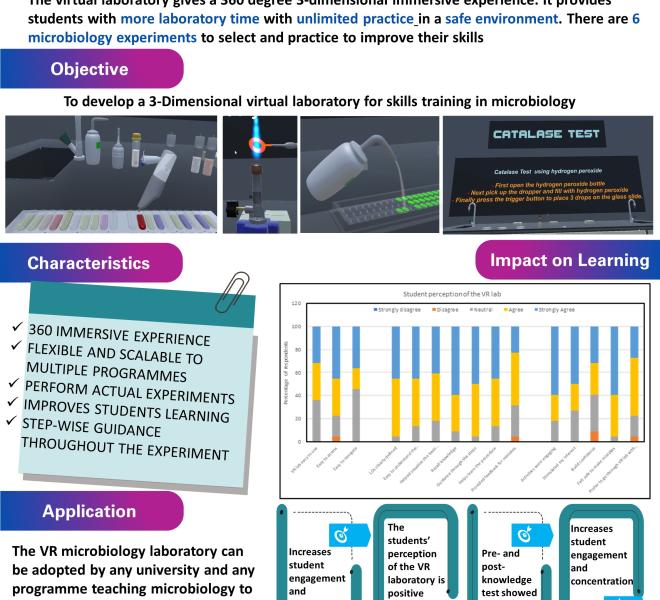
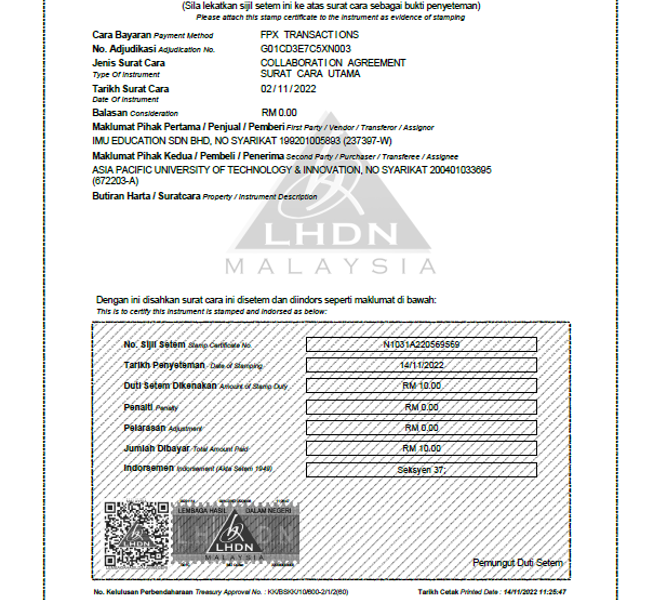
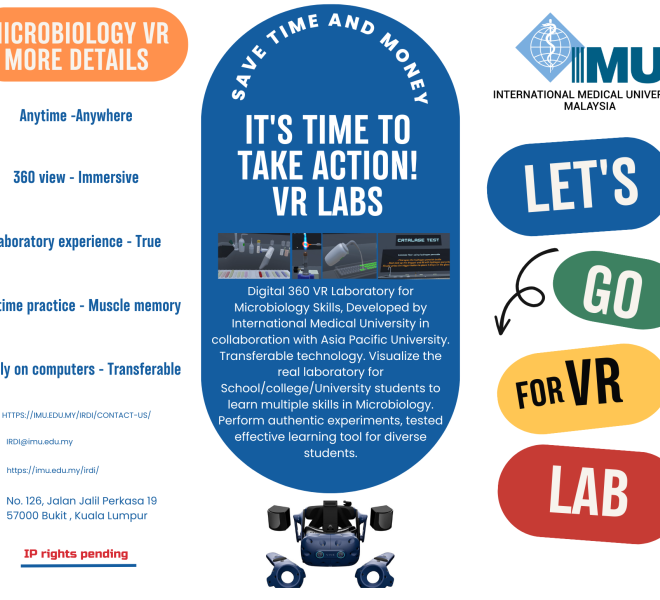
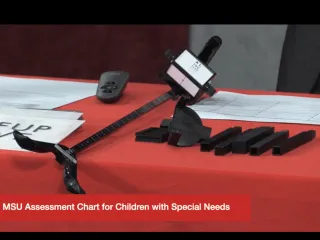
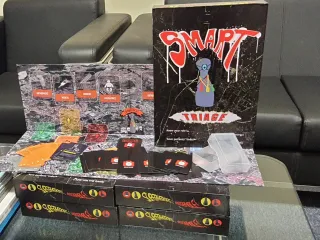
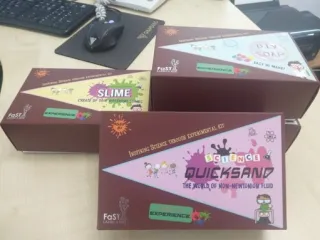

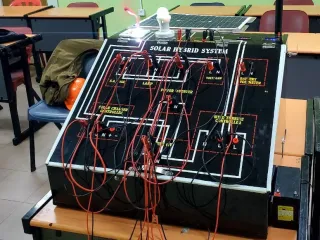
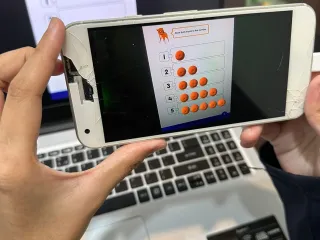
Comment